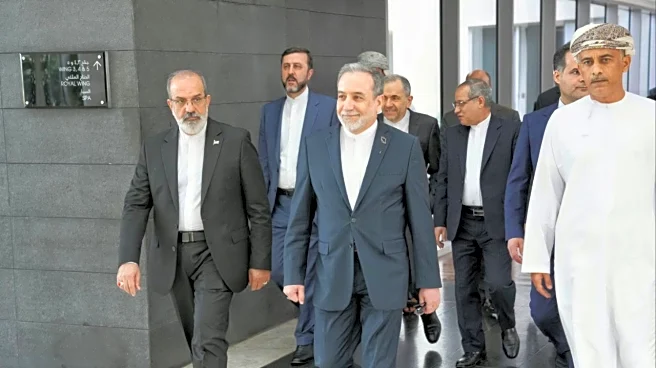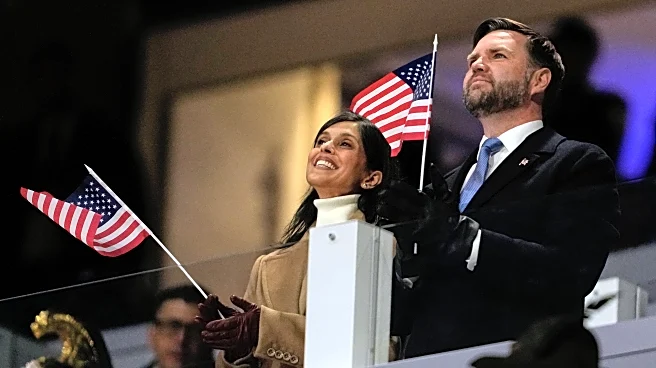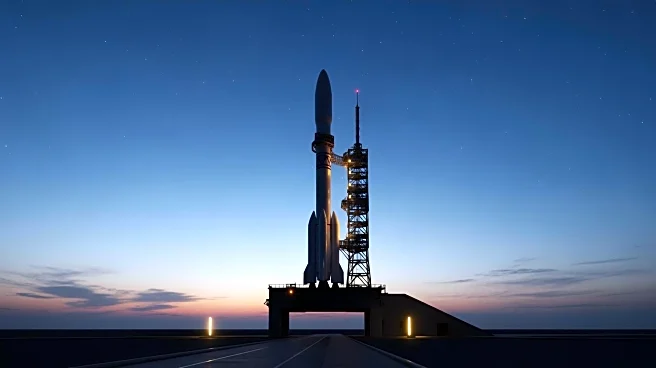What's Happening?
As the two-year anniversary of the October 7, 2023, attacks by Hamas on southern Israel approaches, the region remains embroiled in conflict. The attacks resulted in over 1,200 Israeli deaths and the abduction of hundreds into Gaza, prompting a severe military response from Israel. This response has led to significant destruction in Gaza, with tens of thousands of Palestinian casualties and a humanitarian crisis. Recently, President Trump discussed a potential peace deal with Israeli Prime Minister Benjamin Netanyahu, though its acceptance remains uncertain. The deal's terms are contested, with Hamas yet to agree and Netanyahu seeking adjustments. The situation is further complicated by historical precedents and the failure of past peace processes, as highlighted in a new book by Robert Malley and Hussein Agha. The book examines the collapse of the Oslo Peace Process and the enduring complexities of the Israeli-Palestinian conflict.
Why It's Important?
The ongoing conflict in the Middle East has significant implications for regional stability and international relations. The humanitarian crisis in Gaza and the continued violence exacerbate tensions, affecting global diplomatic efforts and security. The potential peace deal, if realized, could alter the geopolitical landscape, impacting U.S. foreign policy and its role in the region. However, the historical failures of past peace processes underscore the challenges in achieving a lasting resolution. The conflict affects not only the immediate region but also international stakeholders, including the U.S., which has historically played a mediating role. The situation highlights the complexities of addressing deep-rooted historical grievances and the need for innovative diplomatic solutions.
What's Next?
The future of the peace process remains uncertain, with potential developments hinging on the acceptance of the proposed deal by all parties involved. The U.S. and other international actors may need to reassess their strategies and roles in facilitating dialogue and reconstruction efforts in Gaza. The possibility of a Trump-led interim entity overseeing Gaza's reconstruction could face resistance and require careful negotiation. Additionally, the broader implications of the conflict may prompt renewed discussions on alternative solutions beyond the traditional two-state framework. Stakeholders will need to navigate the delicate balance of addressing security concerns, humanitarian needs, and political aspirations.
Beyond the Headlines
The ongoing conflict and peace process efforts raise ethical and cultural questions about the narratives and historical grievances of both Israelis and Palestinians. The book by Malley and Agha suggests that the pursuit of a two-state solution may have overlooked deeper issues, such as the recognition of historical events like the Nakba and the legitimacy of claims to the land. These underlying issues complicate the path to peace and require a reevaluation of traditional diplomatic approaches. The situation also reflects broader themes of power dynamics, historical memory, and the challenges of reconciling competing national identities.









